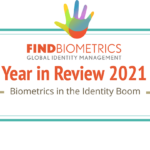Welcome to FindBiometrics’ digest of identity industry news. Here’s what you need to know about the world of digital identity and biometrics today:
SAMOSA Act Could ‘Significantly Affect’ Feds’ Software Contracting
Legislators in the House of Representatives have introduced bipartisan legislation that would compel government agencies to report licensing information on software contracts with technology vendors and require independent reviews of such agreements. According to FedScoop, the Strengthening Agency Management and Oversight of Software Assets Act (SAMOSA) is “expected to significantly affect how federal agencies approach the purchasing of software and IT services,” with Microsoft expected to be the private company impacted most, due to its prominence as a vendor to the federal government. The bill has already been introduced in the Senate and been approved by the Homeland Security and Governmental Affairs Committee.
CISA Seeks Info for ‘Threat Intelligence Enterprise Services’
The General Services Administration has published an RFI on behalf of the Cybersecurity and Infrastructure Security Agency concerning the development of ‘Threat Intelligence Enterprise Services’ that would enhance CISA’s Cyber Threat Intelligence capabilities. These capabilities would be offered by CISA “as a compendium of enterprise services to federal, intelligence community, state and law enforcement customers,” according to the RFI. The deadline for responses is December 19.
With Ekemp Out, Liberia’s Elections Commission Picks Laxton
Liberia’s National Elections Commission has settled on Laxton Group as its chosen vendor for the country’s biometric voter registration, setting the stage for a conclusion to a convoluted, messy procurement process whose central controversy revolved around special treatment for another bidder, China-based Ekemp. The New Dawn reports that the Commission has now officially requested the Public Procurement and Concession Commission’s approval for its selection of Laxton, explaining that the company was chosen after the PPCC had ruled out Ekemp.
New Gauteng Residential Complex to Feature Biometric Access Control
Construction is getting underway on the Orlando Towers Estates residential complex in Soweto, South Africa, with developers planning to implement biometric access control as a key feature of the facilities. Soweto is located in the province of Gauteng, whose Premier has been planning the implementation of an extensive, public facial recognition system as part of a high-tech policing project. Raubex is the developer behind the construction of the Orlando Towards Estates.
Face-scanning Chinese EV to Launch in UK, Europe
Facial recognition technology is helping at least one China-based electric car company to target potential customers in Europe. As Reuters reports, the last few months have seen several Chinese electric vehicle makers receive five-star ratings from the European New Car Assessment Programme, which assesses vehicles for their “active and passive safety features” that rise above minimum requirements. Great Wall Motor was one of them, and its ORA Funky Cat vehicle, which features a biometric driver recognition system, among other bells and whistles, will launch in Britain, Ireland, Germany, and Sweden by the end of this year.
Neurotechnology Announces New Visitor Management System
Neurotechnology has launched a new access control system based on facial recognition via live video feeds. In announcing the NCheck Visitor Management System, the company said that it also features presentation attack detection capabilities, and support for additional biometric modalities, though it did not specify which modalities. The announcement immediately follows Neurotechnology’s launch of SentiVeillance Cluster, a surveillance system that can analyze multiple video streams simultaneously.
New Moroccan Biometric Payment Card Trials Feature FPC Tech
Fingerprint Cards technology is being used in two new commercial launches of biometric payment cards in Morocco. In announcing the launches, FPC did not name the financial services organizations involved in the new launches, but noted that they concern biometric cards provided by Thales and featuring FPC’s T-shape sensor module. The new launches further underscore the dynamism of the Middle Eastern region in the emerging biometric payment cards market, as detailed in FindBiometrics’ recent Financial Biometrics Month feature. Fingerprint Cards says its technology has now been used in ten commercial launches and 24 pilots with banks.
FIDO’s Next Virtual Summit to Focus on IoT
The FIDO Alliance has announced its next Authenticate Virtual Summit, dubbed ‘Securely Onboarding All the Things: The FIDO Fit in IoT”. The event will take place December 7, 2022, from 8:00am to 12:00pm PT. The Alliance’s FIDO Device Onboard specification is likely to take a lot of the spotlight during the online event, which will also feature speakers from Intel and Qualcomm.
Ugly Sweater Thwarts Computer Vision Tech
Researchers at the University of Maryland’s Computer Science department have created a hideous sweater designed to confuse computer vision systems. Featuring a bizarre print that will certainly confuse human eyes, the “stylish pullover” (as the researchers describe it) did indeed render its wearer invisible to ‘object detection’ systems, but it isn’t yet clear how effective it would be against the more sophisticated facial recognition systems of today.
–
November 22, 2022 – by Alex Perala








Follow Us